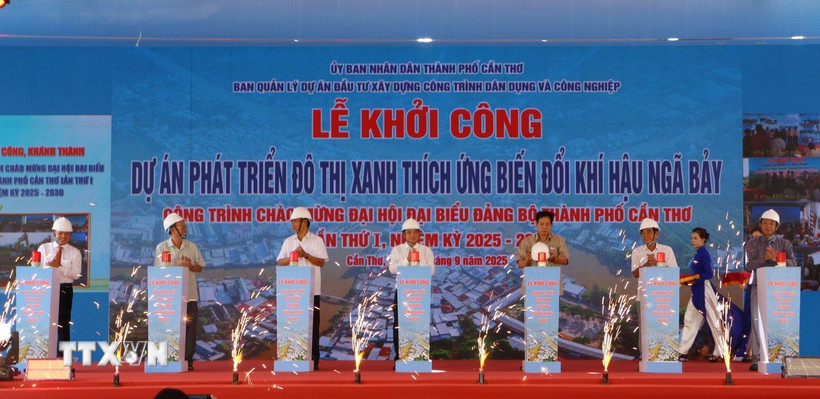HCMC – Can Tho City has begun work on a green urban development project worth over VND1.2 trillion aimed at modernizing infrastructure and strengthening climate resilience.
The project, which is being implemented in Dai Thanh and Nga Bay wards, has a total budget of VND1.211 trillion. The funding comes from several sources, including a VND780.5 billion loan from the French Development Agency (AFD), nearly VND40.9 billion in non-refundable ODA, and about VND390 billion from local funds.
According to the city’s civil and industrial project management board, the project consists of four components and is expected to be completed in 570 days by a consortium of four contractors.
Works include stormwater drainage and anti-erosion embankments, wastewater collection and treatment, upgrading public spaces such as Xang Thoi Lake, and capacity building for agencies managing environmental risks.
Site clearance has reached more than 80% and is expected to be completed by October 2025. Contractors have started on the Cai Con River embankment, mobilizing finance, equipment, and labor to meet or exceed the construction schedule.
Local authorities said the project is critical as erosion and waste management challenges have disrupted daily life in Nga Bay. Community participation has been strong, with residents engaging in waste sorting, energy saving, and tree planting.
Businesses in the area also expect benefits. Tran Thanh Tam, director of BOT Tam Nghia Company, said the project would improve the business climate, attract investors and tourists, and create opportunities in green industries such as renewable energy and waste treatment.
Can Tho leaders said the project is part of the city’s strategy to become an ecological, modern, and sustainable urban center in the Mekong Delta. Tran Van Lau, chairman of the People’s Committee of Can Tho City, urged contractors and consultants to ensure quality and timely progress while authorities provide oversight and resolve obstacles.
The project is seen as a step toward achieving national resolutions on urban development and international integration, while enhancing the city’s resilience to climate change and improving residents’ quality of life.









